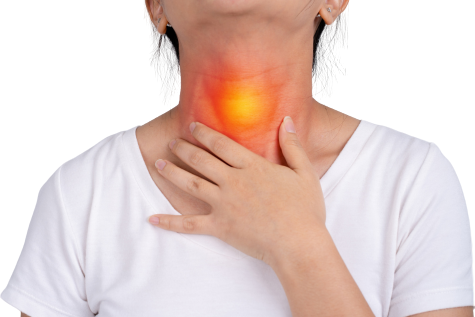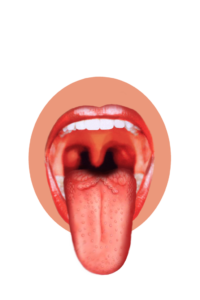Mononucleosis Expert in Perumbakkam
Your Trusted Partner in Mononucleosis
“The greatest courage is not found in the bottle; it’s the strength to pour it out and start a new chapter of life.” We are here to provide you with top-notch care and guidance to tackle your problems.

Understanding Mononucleosis
Signs of Mononucleosis
Alcoholism, also known as alcohol use disorder, is a chronic and progressive condition characterized by a strong compulsion to consume alcohol, loss of control over drinking, and negative emotional and physical consequences associated with alcohol use .You might be suffering from alcoholism if you are experiencing any of the following signs:
Over 90% of mono cases are caused by the Epstein-Barr virus. Other viruses and certain infections may also bring on the illness. The symptoms can develop because of:
- Adenovirus
- Cytomegalovirus (CMV).
- Hepatitis A, Hepatitis B and Hepatitis C.
- Herpes simplex virus (HSV).
- Human immunodeficiency virus (HIV).
- Rubella
- Toxoplasmosis

Symptoms of Mononucleosis:
- Mononucleosis
- Extreme fatigue
- Fever
- Headaches
- Loss of appetite
- Muscle aches or weakness
- Rash
- Sore throat.
- Swollen lymph nodes in the neck, armpits or groin
- Swollen tonsils
Who might get mononucleosis (mono)?
There are often two peaks when people acquire EBV: early school age children and again around adolescence/young adulthood. Young children are often asymptomatic, whereas teenagers and people in their 20s are most likely to get mono. About one in four people in this age group who get EBV come down with mono, but anyone can get it, no matter their age.
Is mono a sexually transmitted infection?
Epstein-Barr is a type of herpes virus. It’s different than the herpes simplex virus (HSV) that causes genital and oral herpes. Both viruses can be sexually transmitted. However, EBV is more likely to spread through other means like sharing drinks or kissing.
Diagnosing Infectious Mononucleosis
Healthcare providers typically diagnose infectious mononucleosis based on symptoms.
Laboratory tests are not usually needed to diagnose infectious mononucleosis. However, specific laboratory tests may be needed to identify the cause of illness in people who do not have a typical case of infectious mononucleosis.
The blood work of patients who have infectious mononucleosis due to EBV infection may show—
- more white blood cells (lymphocytes) than normal
- unusual looking white blood cells (atypical lymphocytes)
- fewer than normal neutrophils or platelets
- abnormal liver function
Prevention
Mononucleosis is spread through saliva. If you’re infected, you can help prevent spreading the virus to others by not kissing them and by not sharing food, dishes, glasses and utensils until several days after your fever has improved — and even longer, if possible. And remember to wash your hands regularly to prevent spread of the virus.
The Epstein-Barr virus may persist in your saliva for months after the infection. No vaccine exists to prevent mononucleosis.
Treatments
There isn’t a vaccine or cure for mono. Antibiotics to fight bacterial infection and antiviral medications to kill other viruses don’t work against mono. Instead, treatments focus on helping you feel better by relieving symptoms. Your care might include:
Rest: Mono makes you very tired. Sleep helps your body fight infection.
Hydration: Drink plenty of fluids to prevent dehydration.
Sore throat soothers: You can gargle with salt water and use throat lozenges.
Avoiding sports: Physical activity can put too much pressure on an enlarged spleen, increasing the risk of rupture. You should avoid contact sports and strenuous exercise while you’re sick and for up to four weeks afterward.
Treating secondary infections and other complications: A streptococcal (strep) infection sometimes goes along with the sore throat of mononucleosis. You may also develop a sinus infection or an infection of your tonsils (tonsillitis). If so, you may need treatment with antibiotics for these accompanying bacterial infections. Severe narrowing of your airway may be treated with corticosteroids.
Risk of rash with some medications: Amoxicillin and other antibiotics, including those made from penicillin, aren’t recommended for people with mononucleosis. In fact, some people with mononucleosis who take one of these drugs may develop a rash. The rash doesn’t necessarily mean that they’re allergic to the antibiotic, however. If needed, other antibiotics that are less likely to cause a rash are available to treat infections that may go along with mononucleosis.
Frequently Asked Question on Mononucleosis
Unhealthy alcohol use poses health risks and can lead to various consequences associated with alcoholism. Binge drinking, defined as consuming large amounts of alcohol within a short time, can result in significant safety and health issues.
Alcohol use disorder ranges from moderate to severe, with even mild cases having the potential to escalate and cause serious problems. If your drinking pattern causes significant distress and disrupts your daily life, it is likely indicative of alcohol use disorder.
Early treatment is critical as even mild alcohol use disorder can progress and lead to severe consequences. Seeking timely help and treatment is essential for a successful recovery journey.
Risky alcohol use includes binge drinking, heavy drinking, and any use by pregnant women or those under age 21. Binge drinking is drinking five or more drinks on a single occasion for men or four or more drinks on a single occasion for women.
